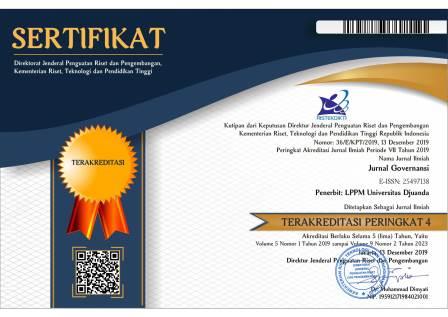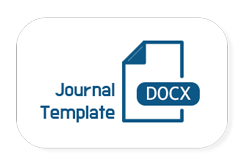EXPLOITATION OF WOMEN IN THE CHANGING POWER DYNAMICS
DOI:
https://doi.org/10.30997/jgs.v10i2.13611Keywords:
Local Politics, Oligarchy, WomenAbstract
This research examines the role of women in political oligarchy and their potential to change power dynamics. Political oligarchy concentrates power in the hands of a few, often overlooking women's roles within this structure. Feminist intersectionality reveals that social class significantly influences women's involvement in oligarchy, with greater barriers for women from lower economic classes. Women's participation in politics, both as leaders and members of political parties, is crucial for representing their unique needs in policy-making. However, women in decision-making roles often face cultural and normative dilemmas, needing to overcome negative stereotypes. The feminist movement plays a vital role in addressing gender inequality by changing cultural norms and raising awareness of gender bias. Although the Constitution of Indonesia and international conventions affirm gender equality, implementation requires specific policies. This research employs a qualitative descriptive method, collecting data from literature, official documents, and news sources. Findings indicate that women's roles in political oligarchy are often tied to kinship relations, political clans, and dynasties. Despite affirmative action policies promoting 30% female representation in legislative candidate lists, this representation often serves to validate the interests of certain groups. Nonetheless, women's involvement in politics is a positive step toward gender equality. Addressing gender inequality and increasing women's participation in decision-making requires robust efforts to support women's rights and dismantle social and political barriers. Further policy implementation to support women's political representation is essential for a more inclusive and gender-equal society.
References
Agus Riswanto, S. H. (2020). Melawan oligarki 2020. Nas Media Pustaka.
Choi, N. (2019). Women’s political pathways in Southeast Asia. International Feminist Journal of Politics, 21(2), 224–248. https://doi.org/10.1080/14616742.2018.1523683
Clark, M. M. (1990). Race, Class, Gender, and Sexuality: On Angela Y. Davis’ “Women, Culture, and Politics. Social Justice. Social Justice.
Dewi, K. H., Latifa, A., Subono, N. I., Prasetyawan, W., & Prasojo, A. P. S. (2023). “Dia Dikader”: Women’s NGOs roles, networks, and the agency of women’s legislative candidates in West Sumatra. Asian Journal of Women’s Studies, 29(4), 506–530. https://doi.org/10.1080/12259276.2023.2285395
Domhoff, G. W. (2018). Who Rules America? In The Inequality Reader (pp. 112–117). Routledge. https://doi.org/10.4324/9780429494468-12
Effendi, W. R. (2018). Dinasti Politik Dalam Pemerintahan Lokal Studi Kasus Dinasti Kota Banten. Jurnal Trias Politika, 2(2), 233–247.
Eveline, J. , B. C., & Binns, J. (2009). Gender Mainstreaming versus Diversity Mainstreaming: Methodology as Emancipatory Politics. Gender Work and Organization.
Gidengil, E., & Everitt, J. (2019). The Impact of Women Leaders on Policy Making: Case Studies from Europe and Oceania. Politics & Gender , 15(3), 435–452.
Gusmansyah, W. (2019). Dinamika Kesetaraan Gender dalam Kehidupan Politik Di Indonesia. HAWA, 1(1). https://doi.org/10.29300/hawapsga.v1i1.2233
Hadiz, R. V., & Robinson, R. (2018). The Political Economy of Oligarchy and the Reorganization of Power in Indonesia. In Beyond Oligarchy (pp. 35–56). Cornell University Press. https://doi.org/10.7591/9781501719158-005
Haliim, W. , & H. A. I. (2020). Dinasti Politik: Basis Politik dan Kepuasan Publik. Jurnal Politik Profetik, 8(2), 258–273.
Hayward, J. (2021). Jacinda Ardern’s Political Legacy and its Implications for Women Leaders. Pacific Affairs, 94(1), 55–75.
Johansson, A. C. (2019). Political Change and the Business Elite in Indonesia. In Building Inclusive Democracies in ASEAN (pp. 143–172). World Scientific. https://doi.org/10.1142/9789813236493_0009
Juniar, A. (2021). Redesain demokrasi internal partai politik: Upaya mencegah oligarki dan korupsi partai politik. Jurnal Politikom Indonesiana, 17–39.
Kingsbury, D. (2005). Power Politics and the Indonesian Military. Routledge. https://doi.org/10.4324/9780203987582
Magriasti, L., Subono, N. I., & Kosandi, M. (2022). Women’s Representation on Regional People’s Representative Council Padang City in Society Homogeneity. Jurnal Ilmu Sosial Dan Ilmu Politik, 25(3), 209. https://doi.org/10.22146/jsp.63161
Munggaran, P. T. (2023). Peran Dan Pengaruh Perempuan Dalam Dinamika Politik Di Indonesia. Jurnal Indonesia Sosial Teknologi, 4(7).
Nurcahyo, A. (2016). Relevansi Budaya Patriarki Dengan Partisipasi Politik Dan Keterwakilan Perempuan Di Parlemen. Gastya: Jurnal Sejarah Dan Pembelajarannya, 6–1.
Pepinsky, T. B., & Wihardja, M. M. (2011). Decentralization and Economic Performance in Indonesia. Journal of East Asian Studies, 11(3), 337–371. https://doi.org/10.1017/S1598240800007372
Purdey, J., & Purdey, J. (2016). Political families in Southeast Asia. South East Asia Research, 24(3), 319–327. https://doi.org/10.1177/0967828X16659027
Sen. K, & Hill.D., T. (2007). Media, Culture and Politics in Indonesia. PT Equinox Publishing Indonesia.
Sihombing, I. (2018). Reformulasi Demokrasi Internal Partai Politik: Sebuah Upaya Mencapai Negara Demokratis yang Hakiki. Jurnal Pemilu Dan Demokras.
Wahyudi, V. (2018). Peran Politik Perempuan dalam Perspektif Gender. Politeia: Jurnal Politik Islam, 1(1).
Winters Jaffrey. (2011). Oligarchy. Gramedia Pustaka Utama.
Downloads
Published
How to Cite
Issue
Section
License
Copyright (c) 2024 Redni Meldianto, Rozidateno Hanida, Siska Hasnita

This work is licensed under a Creative Commons Attribution-ShareAlike 4.0 International License.
Authors who publish with Jurnal Governansi agree to the following terms:
- Authors retain copyright and grant the journal right of first publication with the work simultaneously licensed under a Creative Commons Attribution 4.0 International License that allows others to share the work with an acknowledgement of the work's authorship and initial publication in Jurnal Governansi.
- Authors are able to enter into separate, additional contractual arrangements for the non-exclusive distribution of the journal's published version of the work (e.g., post it to an institutional repository or publish it in a book), with an acknowledgement of its initial publication in Jurnal Governansi.
- Authors are permitted and encouraged to post their work online (e.g., in institutional repositories or on their website) prior to and during the submission process, as it can lead to productive exchanges, as well as earlier and greater citation of published work.



















